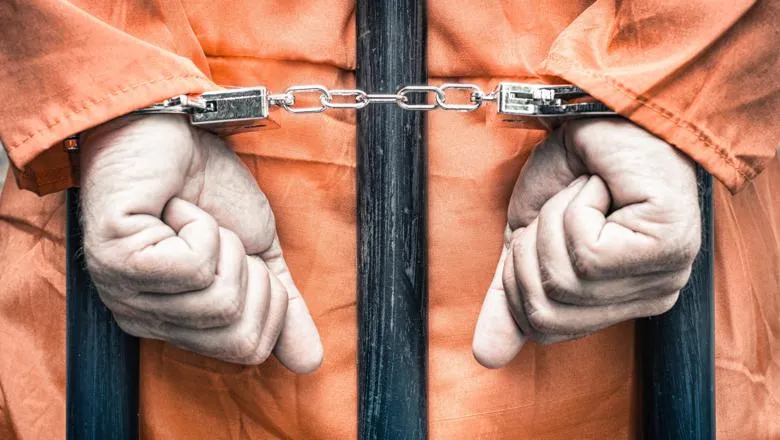04 February 2022
King's students change US Government policy on torture evidence
This week’s u-turn by the Biden administration, ending previous attempts to use evidence derived from torture in a case involving Guantanamo detainee Abd al-Rahim al-Nashiri, has been welcomed by students from King’s Legal Clinic. The Department of Justice’s submission to a Washington DC court mirrors the argument made in an amicus, or ‘friend of the court’ submission, filed on behalf of the Clinic in November 2021.

A submission to a US court, filed on behalf of King’s Legal Clinic, has helped bring about an important re-statement of the principles of international law in relation to evidence obtained through torture.
On Tuesday, the United States Department of Justice (DoJ) filed a new submission in the case of Guantanamo detainee Abd al-Rahim al-Nashiri. In its submission, the DoJ accepted, for the first time in this case, the inadmissibility of statements obtained while Mr al-Nashiri was in CIA custody.
The DoJ’s about-turn mirrors the argument made in an amicus, or ‘friend of the court’ submission, drafted by experts from The Dickson Poon School of Law, drawing on research by students from King’s Legal Clinic.
The Clinic’s amicus contested the legality of an earlier ruling by a US military judge that statements purportedly obtained through torture could be considered in pre-trial proceedings.
Welcoming the DoJ’s filing, Stefanos Arvanitakis, a member of the Clinic’s student team, said: “The decision of the Biden administration to reverse the approach previously taken by the US Military Commission is certainly a big step in the right direction. The categorical prohibition of evidence obtained by means of torture - or cruel, inhuman or degrading treatment or punishment (CIDT) - was upheld by the US Government, reflecting international and domestic legal obligations. The biggest achievement of the recent decision is, in my opinion, the unequivocal pledge by the US government that the prohibition of torture applies to all stages of judicial proceedings.
“That being said, there are a couple of vital questions that remain unanswered. The Al-Nashiri case is not the only case brought before a Military Commission involving the use of torture-tainted evidence. It is, therefore, particularly interesting to see how pending cases that raise the question of statements obtained by torture will be treated by both the Military Commissions and the government, and whether the Biden administration is ready and willing to conduct transparent, thorough reviews of torture claims, and adopt similarly brave yet necessary – under domestic and international law – decisions.
In its submission to the court, the US Department of Justice “recognizes that torture is abhorrent and unlawful, and unequivocally adheres to humane treatment standards for all detainees.” Acknowledging its previous position, the submission states that “the government has reconsidered its interpretation of Section 948r(a) (of the US code) and, as a result of that review, has concluded that Section 948r(a) applies to all stages of a military commission case, including pretrial proceedings. In accordance with that conclusion, the government will not seek admission, at any stage of the proceedings, of any of petitioner’s statements while he was in CIA custody.”
While welcoming the DoJ’s submission in the case, Isabelle Standen, one of the Clinic’s Student Co-Directors, believes more need to be done: “While it is a relief to hear the US Government has changed its position, the administration has not gone far enough. There is still a critical failure to properly implement the policy which the Biden administration purports to express, of a complete prohibition of evidence obtained by torture regardless of the petitioner in every case and every circumstance. The Department of Justice should be comprehensively reconsidering the work of its military commissions and failing a complete reconceptualization should, at minimum, be absolute in rejection of this type of evidence.”
The military judge’s May 2021 ruling - the first time prosecutors in Guantanamo Bay are known to have been allowed to use torture evidence in proceedings - received international attention. In a death penalty case, many argued the judge’s decision not only risked Abd al-Rahim al-Nashiri's right to a fair trial, but carried profound implications for other Guantanamo detainees, and for prisoners subject to torture worldwide.
With an appeal pending, a team from King’s Legal Clinic, working under the supervision of Clinic Assistant Director Sue Willman, collated relevant material from all the principal sources of international human rights law.
Professor Philippa Webb, Professor of Public International Law, and Dr Rosana Garciandia, Lecturer in Public International Law, then drafted the amicus submission.
Their submission, which received the support of two former United Nations Special Rapporteurs on Torture, was filed in the US Court of Appeals for the District of Columbia by the law firm Curtis, Mallet-Prevost, Colt & Mosle LLP, acting in a pro bono capacity for the Clinic.
Sue Willman, Assistant Director and Supervising Solicitor at King’s Legal Clinic, said: “It’s incredible that since the amicus submission was filed, the US government has reconsidered its position and concluded that the prohibition on admission of statements obtained through torture applies to all stages of a military commission case.”
Professor Philippa Webb, co-author with Amal Clooney of The Right to a Fair Trial in International Law, said: “The change in the US Government’s position on the use of torture-tainted evidence in pre-trial proceedings brings the United States into compliance with international law. In our submission we argued that international law is crystal clear - statements obtained through torture are inadmissible at any stage of proceedings. It is a categorical prohibition that cannot be diluted or circumvented.
“The Biden Administration has now accepted and adopted this approach. This is important not only for the United States, but as a signal to other States that might have been considering watering down the prohibition of torture in their own legal systems.”
The students and alumna involved in the research for the amicus submission were (in alphabetical order): Stefanos Arvanitakis, Laura Bertagnoli, Pierre-Jean Clausse, Amanda Ignatia (Clinic Student Co-Director), Lea Leonhardt, Perlina Patel, Andreea Marinela Popovici, Rusat Ramgopal, Lucia Saborio Perez, Saras Sawhney, and Isabelle Standen (Clinic Student Co-Director).


